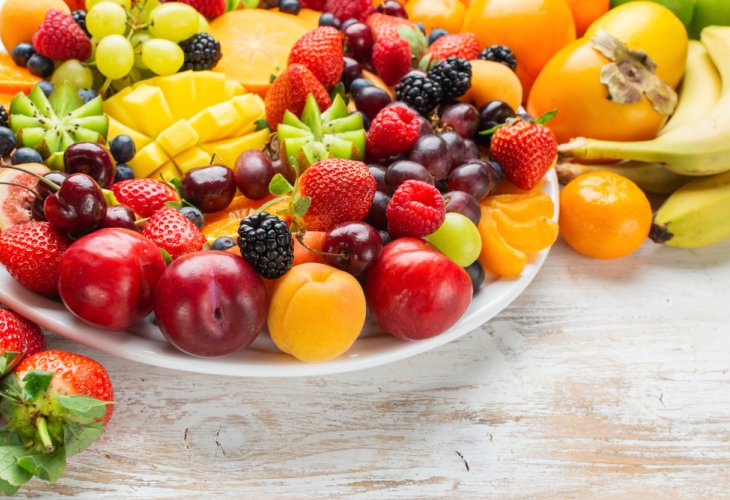Jewish Law
Summer Fruits and Kashrut: Why Checking for Insects Matters
A comprehensive guide to many of the delicious summer treats Hashem has given us
 (Photo: shutterstock)
(Photo: shutterstock)As the warm days of summer bring an abundance of delicious fruits, it's important to remember a key aspect of keeping kosher: carefully checking fruits for insects and worms.
Insects are prohibited for consumption according to Torah law; in fact, eating a single bug can involve transgressing seven mitzvot.
So, since tiny bugs often hide inside fruits like peaches, grapes, and berries, taking the time to inspect your summer harvest ensures that you enjoy these gifts from Hashem in the way He intended.
Watermelon
Presumed clean and does not require inspection.
Peaches and Nectarines
External scale insects — gray scale insects on red spots are occasionally found on the fruit's skin. If scale insects are present, remove them by gently scraping with a fingernail or knife. The red spot itself is not prohibited for consumption.
Internal infestation — carefully examine the fruit's skin. If you notice a dark spot, dark point, or small hole, remove the peel and check to see whether there is a sign of a small worm entering at that point.
Then cut across the fruit at its upper side near the stem and check that worms have not entered from there. All soft or darker areas in the fruit should be cut out, and the fruit folded outward so it can be carefully examined for small worms inside the flesh. (Worms tend to retreat deeper into the fruit and hide when exposed.) It's best to eat peaches "with a knife in hand" — cutting each piece and examining it before eating.
Bananas
Gray insects are sometimes found on banana peels and may stick to the fruit during peeling.
Shake the bunch over a white surface, and if small gray insects (that move quickly) are found, it's advisable to wash each banana before peeling.
Cherries
Cut each fruit in half, remove the pit, turn the fruit halves inside-out, and check for small white worms inside the flesh.
Melons
Normally clean.
If you notice an especially soft area (particularly in the stem depression), check this area for white worms inside the flesh.
Apricots
Cut the fruit in half, remove the pit, and check for reddish-brown larvae. If the fruit is soft, fold each half outward and check for white worms inside the flesh (preferably cut each half into about three segments).
Red or brown spots on the apricot skin are not scale insects.
Grapes
1. Remove damaged grapes. Separate large, dense clusters into several bunches.
2. Soak the grape clusters in soapy water for about three minutes.
3. Thoroughly rinse each cluster from all sides and between the grapes under running water.
4. Green grapes — while eating, glance at each grape to ensure there is no hole or dark spot penetrating inward. If there is, cut the grape at the suspicious spot and check to see if there is a worm inside.
5. Black grapes — halve a sample of about 10% of the grapes and check for internal infestation. If infestation is found, all the grapes should be opened.
6. Grapes for winemaking – no need to check. After making the wine, strain it through a fine-mesh sieve such as a flour sifter.
Plums
1. Scale insects – gray scale insects are rarely found on the fruit's skin; remove them by rubbing with a fingernail or knife.
2. Internal infestation:
• Round plums — cut across the fruit at its upper side near the stem and check for signs of worm entry. Examine the outer side of the fruit for holes, soft areas, or suspicious spots. Cut out the suspicious area and check for worms inside the flesh.
• Italian plums (also known as prune plums) — cut along the groove, remove the pit, and check for internal infestation.
Strawberries and Raspberries
They have high infestation rates and are very difficult to check or clean. They can be purchased frozen in packages with kosher certification. Check out YouTube videos of what hides in these berries and you'll get the picture...
Apples
High-quality apples are usually clean. In summer, it's advisable to halve apples before eating.
Taking the time to carefully check summer fruits for insects is vital part of the mitzvah of keeping kosher. By doing so, we ensure that even our eating honors the Torah's teachings. With simple attention and care, this practice becomes a meaningful part of our daily spiritual life.

